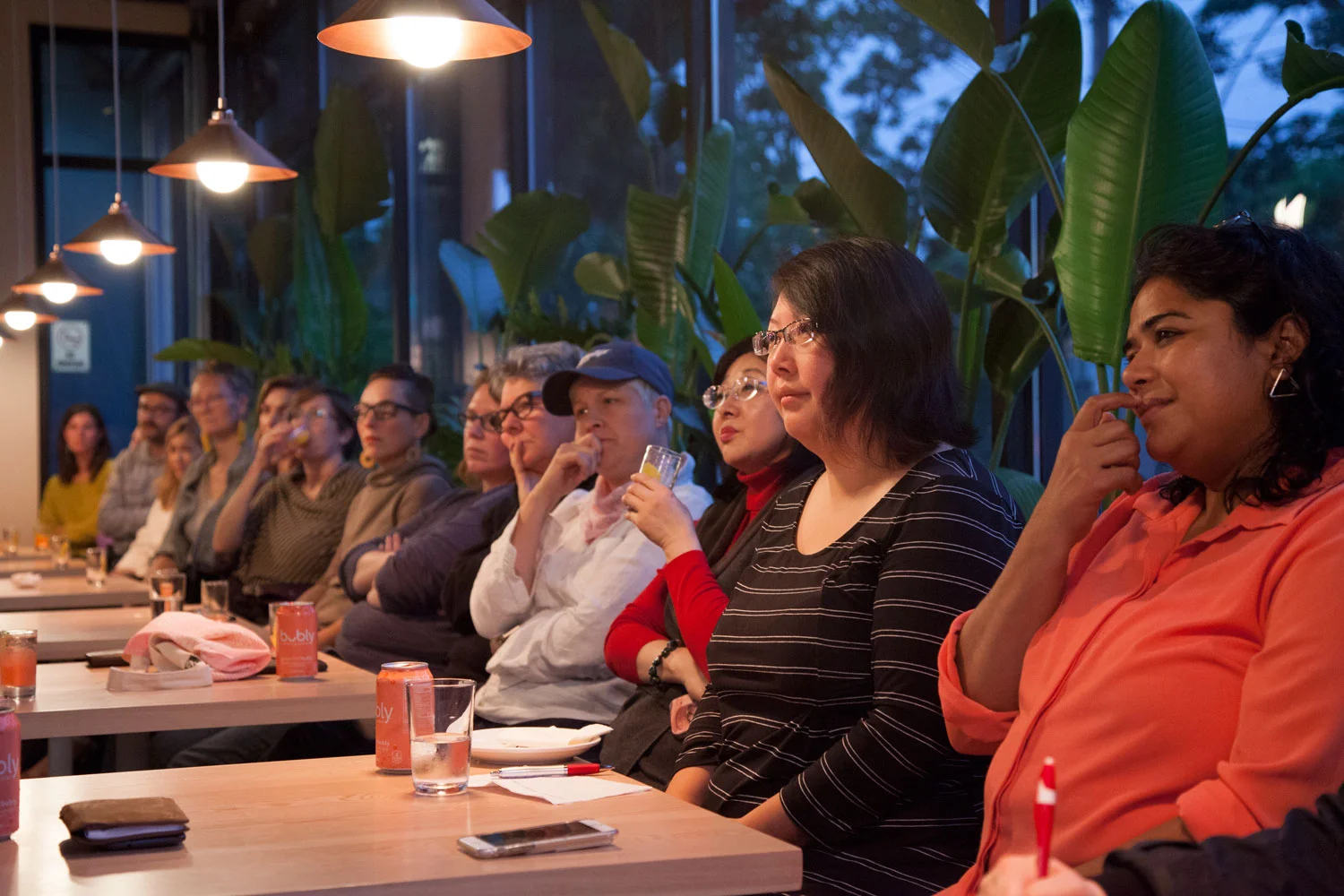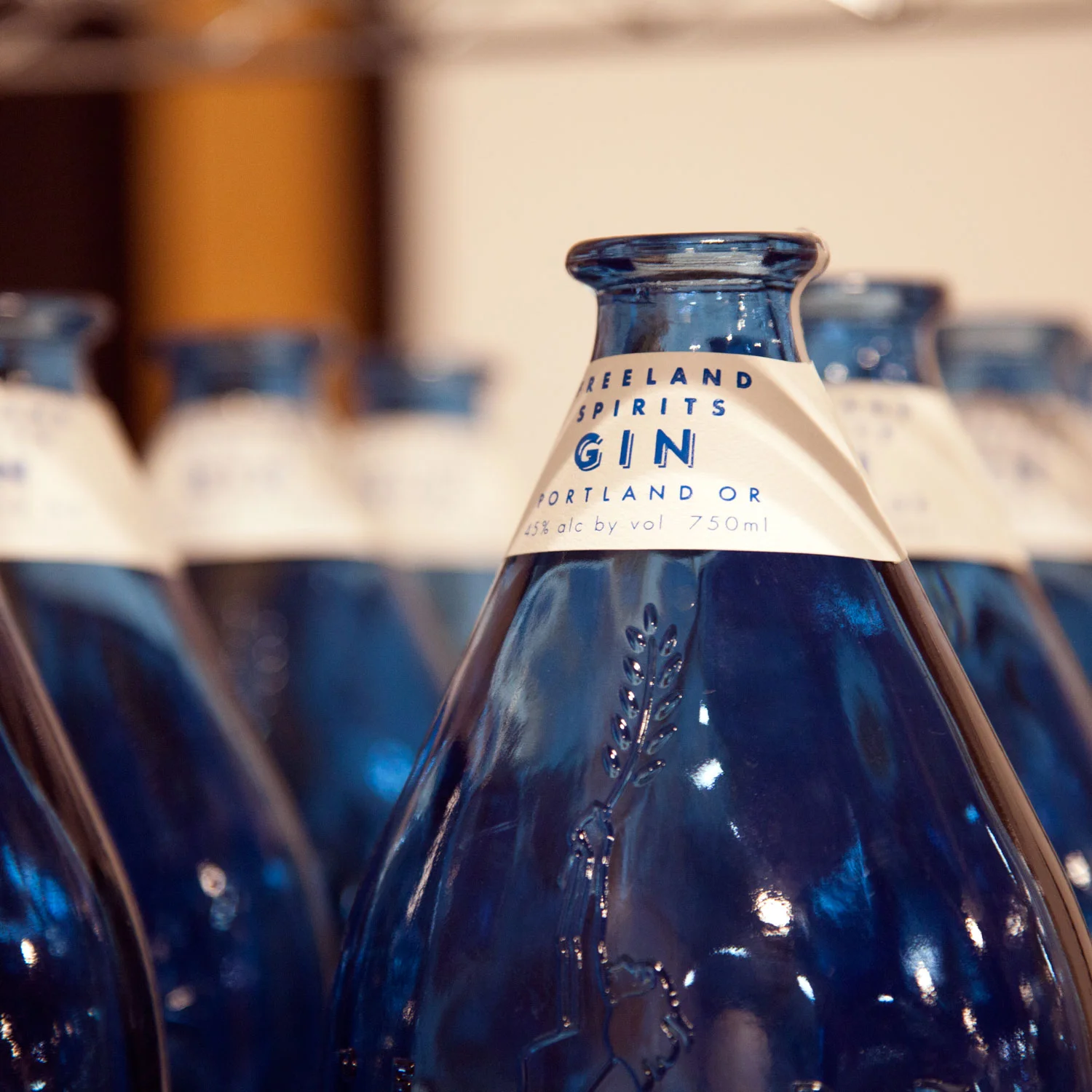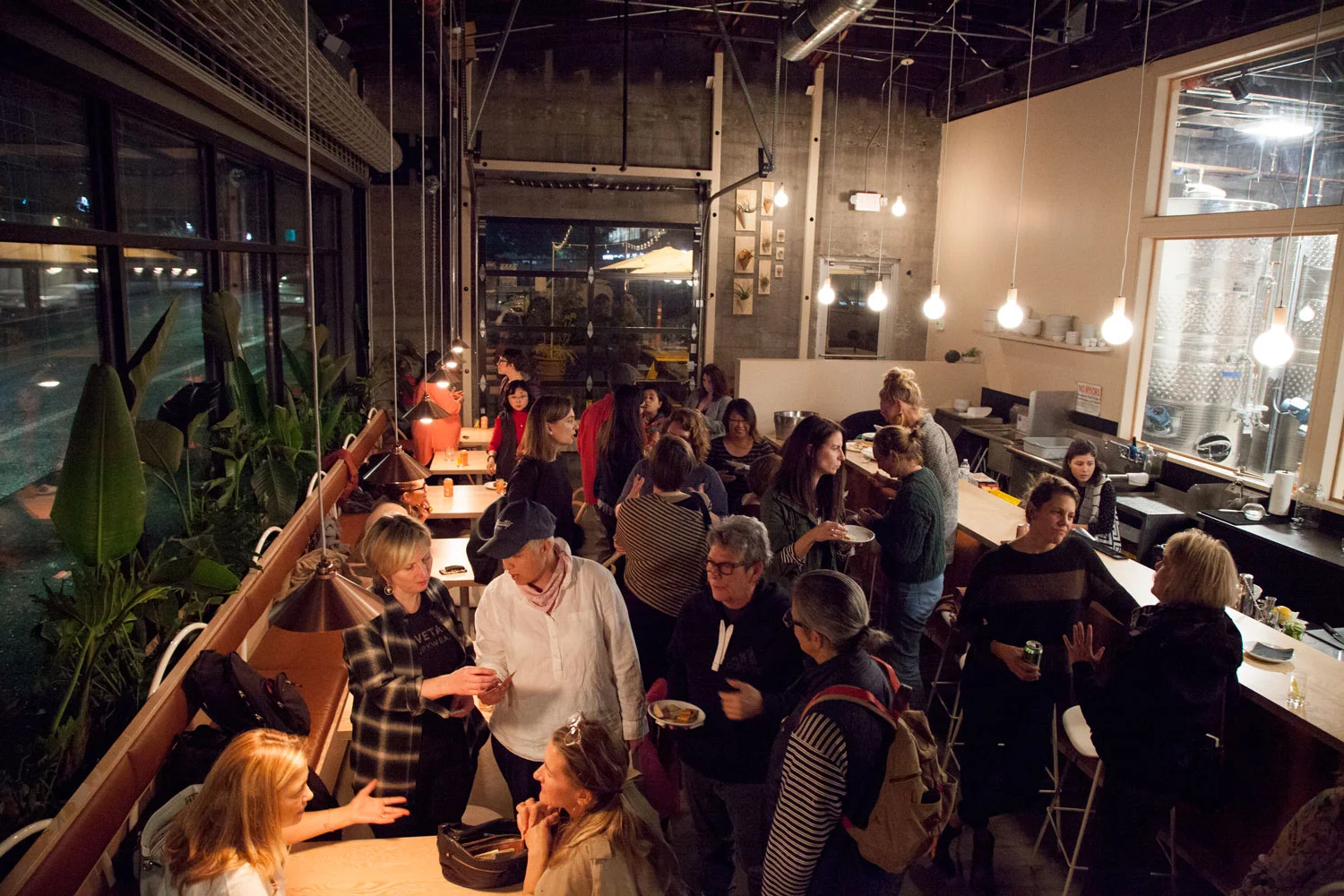Finding That Perfect Fit
From the steely blue exterior, to the navy walls decorated with golden grain, to the artfully crafted bench seating extending nearly the full length of the building, Freeland Spirits is stunning.
And for good reason: When Jill Kuehler started work on the project, she was resolute in her quest to have the best of the best. The copper pot still visible through the large picture window behind the bar? Imported from Germany after a lengthy wait. The blue bottles that look like they could just as easily hold perfume? The result of the search for the perfect designer.
Even better, virtually everything within the space is the result of the work of women. Freeland itself is owned and operated by three women (Kuehler, along with distiller Molly Troupe and Wallowa farmer Cory Carman, who grows grain for Freeland), and they purposefully sought out women-owned companies to assist with nearly every detail.
It was against this backdrop, (with sample-sized cocktails, too!) that those who came to the Lady Makers meetup on October 8 were introduced to Kate Day and Sara DeLuca of Dovetail Workwear (with cofounder Kyle Marie there in spirit), who in turn asked the group to introduce themselves and what brought them there. Nearly forty in attendance, this took a while, and the sheer talent and diversity of the group was made evident; jewelry, clothing, furniture, and cocktail mixers were among the businesses the lady makers listed.
Day and DeLuca told the story of their founding and trajectory. Day, who with Marie began a landscaping company, almost immediately found their workwear wasn’t up to the challenges posed by the Pacific Northwest’s climate. One of their landscaping clients, DeLuca, happened to have a background in the apparel industry, and it was from there that Dovetail began.
The trio spent a long time developing a prototype pant, and they had a lot of help, too: They invited 50 people (carpenters, chefs, welders, makeup artists on film sets) to try out pants and then hosted an informal meetup to discuss their findings. Did the pants work across industries? One woman summed up her experience: “I felt like someone was thinking about me.”
This is something fairly unique to Dovetail, it turns out: In their market research, the founders discovered that most major workwear companies relied heavily on the “shrink it and pink it” method. Though they knew they were satisfying a need in developing the Dovetail line, they might not have realized there was virtually no competition.
From there, Dovetail built a website in the hopes of raising enough money to produce 1200 pairs of pants (they specifically avoided Kickstarter due to their concern about not meeting their goal and having to refund money). A mere year since the presale, the founders have taken on an investor (Sean Beers of Portland Product Werks, LLC), embarked on tours to host fit “clinics” around the country, and have been courted by retailers ranging from denim boutiques to outdoor recreation stores to farm and fleet suppliers.
Even in their momentous growth, Dovetail has vowed to uphold their guiding principles, including a commitment to providing a range of sizes and styles to fit a diverse clientele, and using the most innovative and high-quality fabrics available (they currently work with a women-operated mill in Mexico).
Dovetail’s headquarters, located underneath the west side of the Broadway Bridge, are open by appointment; and soon, you’ll be able to find their products at local retailers like Union Rose, Danner, and Coastal Farm & Ranch.
__
Words by Katey Trnka
Photography by Sarah Toor



